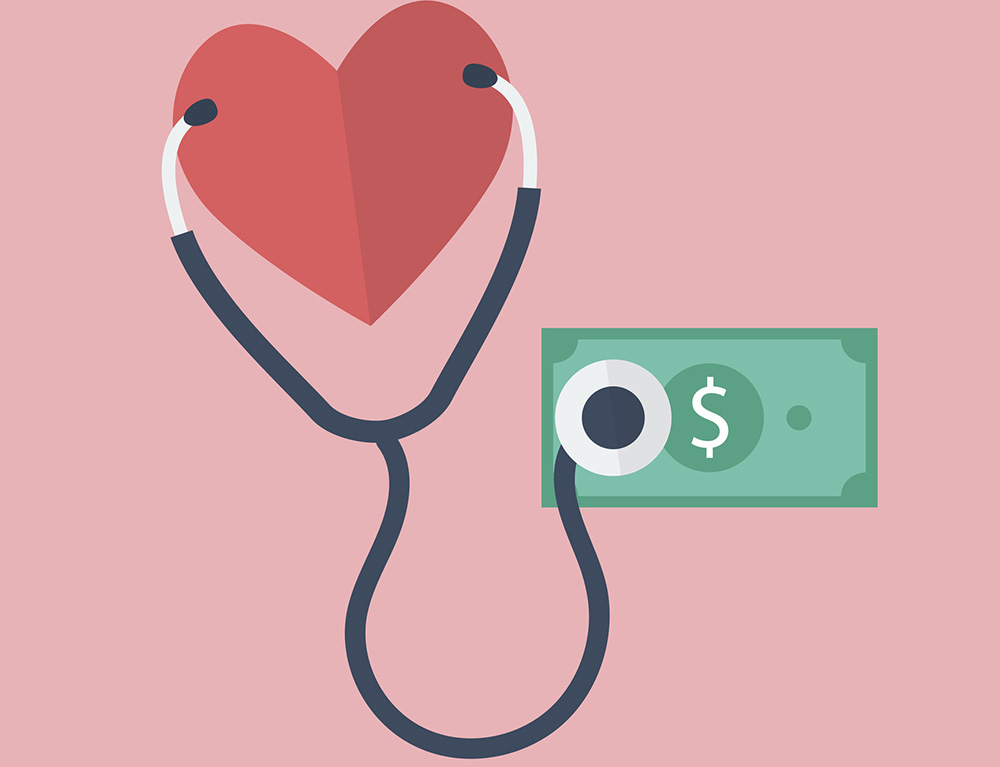The focus for many organizations has been adjusting to the changing economic climate and either struggling to stay afloat or, for essential organizations, cranking out as much work as possible. It’s at this delicate time that things like increased anxiety, postponed medical care, lack of access to vital prescriptions, increased legal and illegal drug use, lack of exercise, and less healthy eating can and will contribute to another kind of crisis: a combination of severe increases in medical coverage and a reduction in employee motivation.
A recent survey conducted by Sharecare and the Boston University of Public Health exhaustively explored the exact effects the pandemic is having on the population of the United States. Their survey, called “Flatten the Curve,” examined data from over 115,000 respondents. The findings are vast, but the data we focused on show an alarming set of circumstances for the current U.S. workforce.
Serious Job Loss Anxiety
The researchers compared results between those who are somewhat and very likely to lose their jobs against everyone else. The results reveal seriously increased levels of a host of concerns for that group.
| Concerns | Respondents somewhat or very likely to lose their jobs | All other respondents |
| Experiencing severe anxiety | 32% | 19% |
| Exercising less | 34% | 29% |
| Eating less healthy | 32% | 24% |
| Drinking more alcohol | 18% | 11% |
| Sleeping Less | 32% | 22% |
| Postponed or canceled a medical appointment | 27% | 27% |
As can be seen, those who are afraid of losing their jobs are significantly more likely than others to experience anxiety and take far worse care of their physical health during this time. Even those who are not afraid show increases in every one of these areas.
These figures should be of concern to any employer, especially those that have tight budgets and can’t afford an increase in their healthcare benefits.
Pay Decrease Also Increasing Health Concerns
Increases in concerns like anxiety and physical health are also being seen among those who reported having pay cuts. Here are the figures for those with pay cuts versus those without.
| Concerns | Respondents experiencing pay cuts | All other respondents |
| Experiencing severe anxiety | 27% | 19% |
| Exercising less | 34% | 29% |
| Eating less healthy | 29% | 24% |
| Drinking more alcohol | 16% | 11% |
| Sleeping Less | 28% | 22% |
| Postponed or canceled a medical appointment | 27% | 27% |
Pay cuts were a solution for many organizations, often in combination with furloughs and layoffs. These results show that having to do the same work for less creates significantly more stress and negative health effects.
Chronic Disease
Any HR manager knows that helping employees manage chronic diseases like heart disease, multiple sclerosis, chronic obstructive pulmonary disease, and others is the only way to manage high healthcare benefit costs while keeping their employees well and working. Unfortunately, the pandemic has had serious effects on those with chronic diseases.
Here are some of the concerning results from the research:
- 29% have postponed or canceled medical appointments.
- 12% can’t get an appointment because the office is closed.
- 6% had a procedure or surgery that was canceled or rescheduled.
- 2% cannot get their requisite supplies and/or medications.
- 54% do not have a 3-month supply of their medication.
These are the most vulnerable of your employees generally speaking but also with regard to the coronavirus. They are far less likely to take the risks that are often required to get the care they need.
COVID-19 Has Impacted Care Management for All Respondents
As the charts above begin to show, it’s not just those who lost their jobs, experienced pay cuts, or have chronic diseases who are experiencing increasingly difficult situations. It’s everyone to one degree or another, and these effects, multiplied across all members of your organization, can be very serious in a number of ways.
- 45% of respondents say the pandemic has impacted their ability to manage their health care in some way.
- 27% said they were postponing appointments.
- 11% said they could not see doctors because the office is closed.
- 5% indicate their procedure/surgery was canceled/rescheduled.
- 2% can’t get necessary equipment or supplies, and 1% can’t get necessary medications.
Attitudes for Those Seeking Medical Attention for Suspected COVID-19 Symptoms
Fears and anxiety surrounding the pandemic influence how people react if they believe they might have COVID-19 themselves. The research found these results:
- 60% say they will seek care from their primary physician (but note office closures/appointment cancellation stats above).
- 15% say they’ll utilize telemedicine.
- 10% say they’ll utilize urgent care.
- 10% say they’ll go to the ER.
- 3% said they wouldn’t seek care at all.
- 1% said they would go to a community clinic.
Conclusion
Employers need to get a handle on this situation as quickly as possible. The longer they delay, the more employees will grow ill or more ill or even die. Additionally, health insurance premiums will go up, and employee productivity and motivation will decrease.

